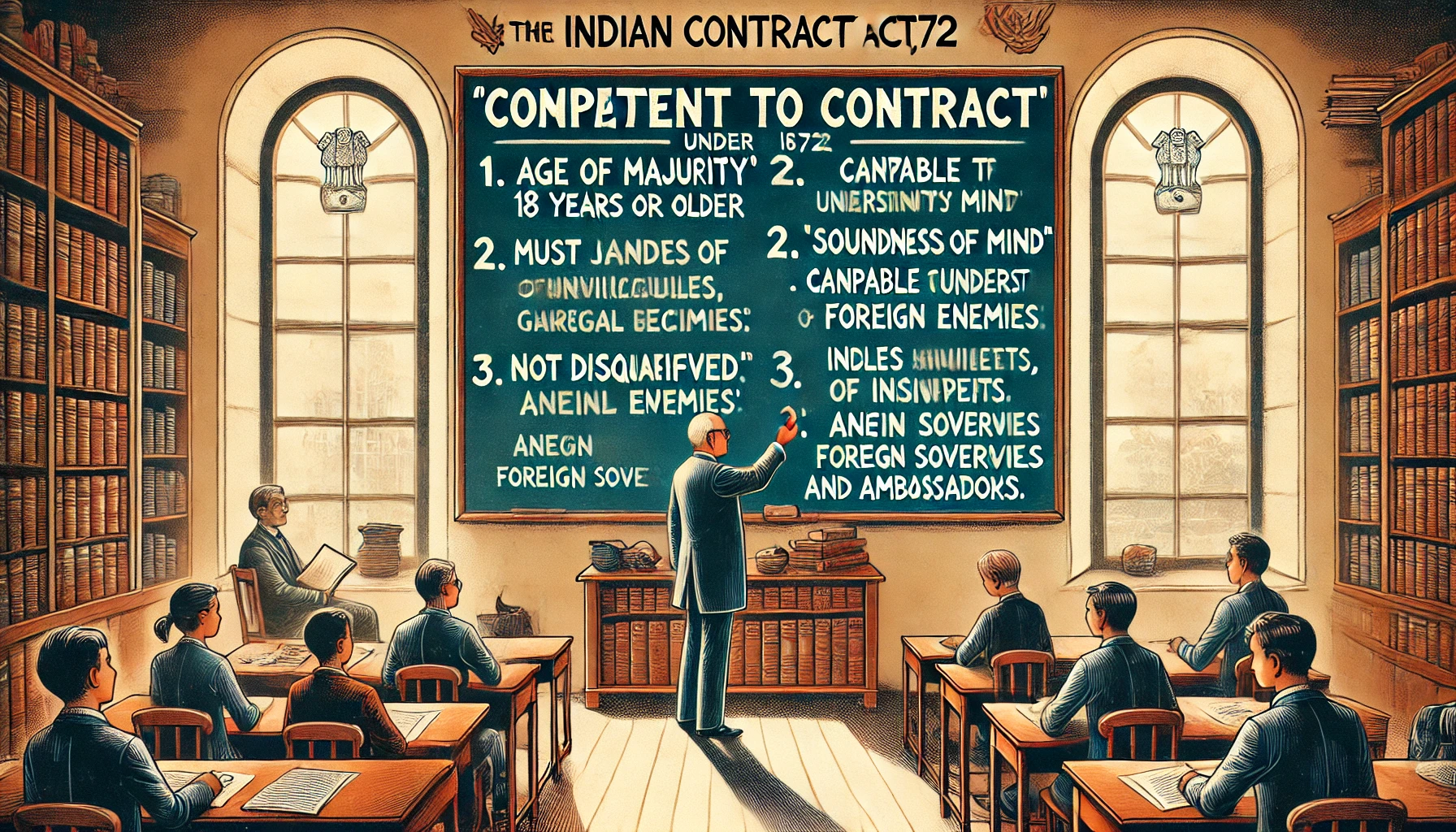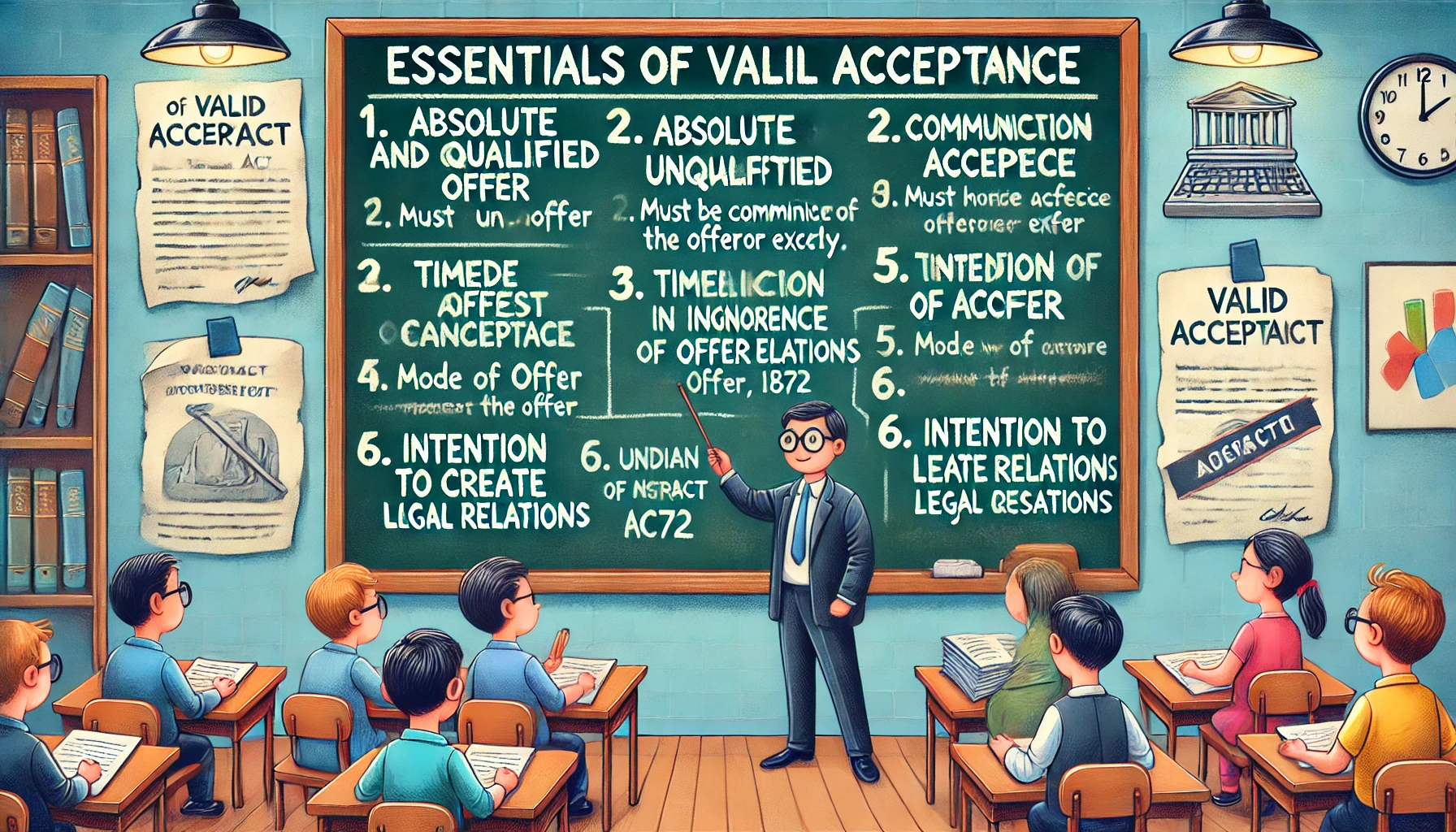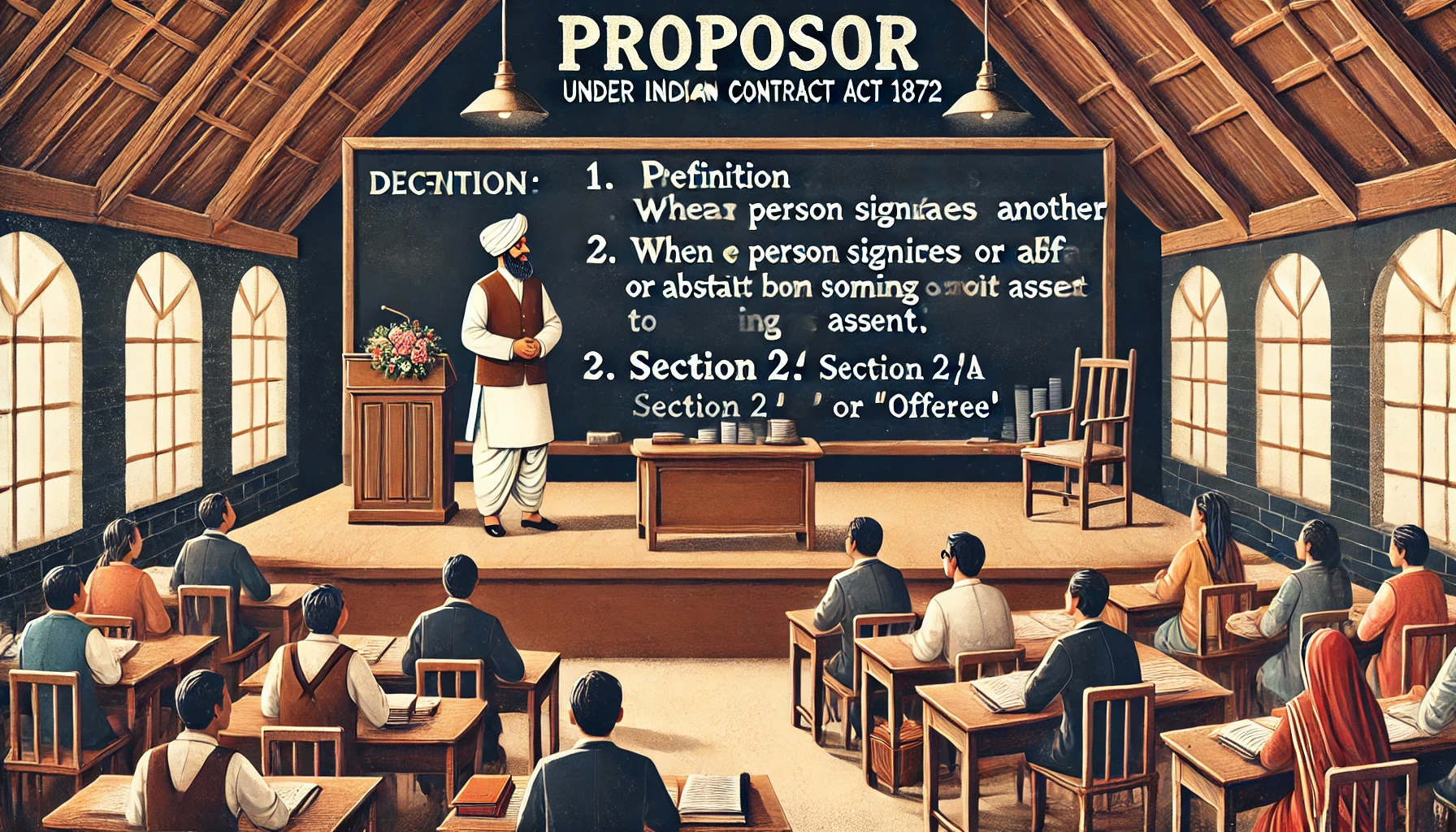Free Consent under Indian Contract Act
Free Consent Under Indian Contract Act
Section 13 of the Indian Contract Act, 1872, defines consent as "when two or more persons agree upon the same thing in the same sense." For two people willing to enter into an agreement, they must agree to the same thing in the same sense.
For example, if A agrees to sell a car to B, and A owns four cars but intends to sell a Honda while B thinks he's buying a Maruti, there is no consensus ad idem (meeting of minds). Both parties are agreeing to different things, so there is no consent and, therefore, no contract.
Section 14 of the Indian Contract Act, 1872, defines free consent, stating that consent is considered free when it is not influenced by:
- Coercion
- Undue Influence
- Fraud
- Misrepresentation
- Mistake
Factors Vitiating Free Consent Under Indian Contract Act
1. Coercion
Under Section 15 of the Indian Contract Act, coercion refers to forcing someone to enter into a contract without their free consent. This involves using threats to obtain consent, which is not considered free under the Act. Coercion is defined as:
- Committing or threatening to commit any act forbidden by the Indian Penal Code (IPC).
- Illegally detaining or threatening to detain any property with the intention of forcing someone into a contract.
Contracts formed under coercion are voidable at the option of the party whose consent was not freely given. This party can either validate or void the contract. If any consideration has been provided, such as money paid or goods delivered, it must be returned or restored if the contract is voided. The burden of proof lies on the affected party to prove the existence of coercion.
2. Undue Influence
Section 16 of the Indian Contract Act, 1872, defines undue influence as a situation where one party, due to their position of power, takes unfair advantage of another party. This can happen in two scenarios:
- When a person holds real or apparent authority over another or has a fiduciary relationship with them.
- When a person makes a contract with someone whose mental capacity is affected by age, illness, or distress, whether temporarily or permanently.
The dominant party's intention must be to gain an advantage. If undue influence is proven, the contract is voidable at the option of the influenced party. The dominant party must prove the absence of undue influence.
3. Fraud
Section 17 of the Indian Contract Act defines fraud as an intentional deception by one party to induce another into a contract. It includes:
- Suggesting a fact that is not true, and which the person does not believe to be true.
- Active concealment of facts.
- Promises made without any intention of performing them.
- Any other act meant to deceive.
Fraud must result in some loss or damage to the aggrieved party. The statement must be a fact, not an opinion.
4. Misrepresentation
Under Section 18 of the Indian Contract Act, misrepresentation occurs when one party gives incorrect, false, or misleading information. Unlike fraud, misrepresentation is unintentional. It includes:
- Making a positive assertion believed to be true but is false.
- Any breach of duty that benefits the person committing it by misleading others, without any intent to deceive.
- An innocent mistake made by one party about the subject matter of the contract.
Misrepresentation does not involve intent to deceive but can still render a contract voidable.
5. Mistake
A mistake is an incorrect belief that leads to a misunderstanding between the parties. The law distinguishes between two types of mistakes:
- Mistake of Law: This involves a misunderstanding of the law, whether Indian or foreign. Ignorance of Indian law is not excusable, as it is presumed that everyone knows the law. However, ignorance of foreign law is considered a mistake of fact under Indian law.
- Mistake of Fact: This occurs when both parties misunderstand each other's terms, leading to a crossroad in the agreement. Mistakes can be unilateral (by one party) or bilateral (by both parties). It is generally innocent and not intentional.
Conclusion
Understanding the concept of free consent is crucial for ensuring the validity of a contract. The Indian Contract Act, 1872, provides a comprehensive framework to determine the presence of free consent and outlines the factors that can vitiate it. By recognizing the importance of free consent, parties can avoid disputes and ensure that their agreements are legally enforceable and fair.
Share
Related Post
Tags
Archive
Popular & Recent Post




















































































































Comment
Nothing for now